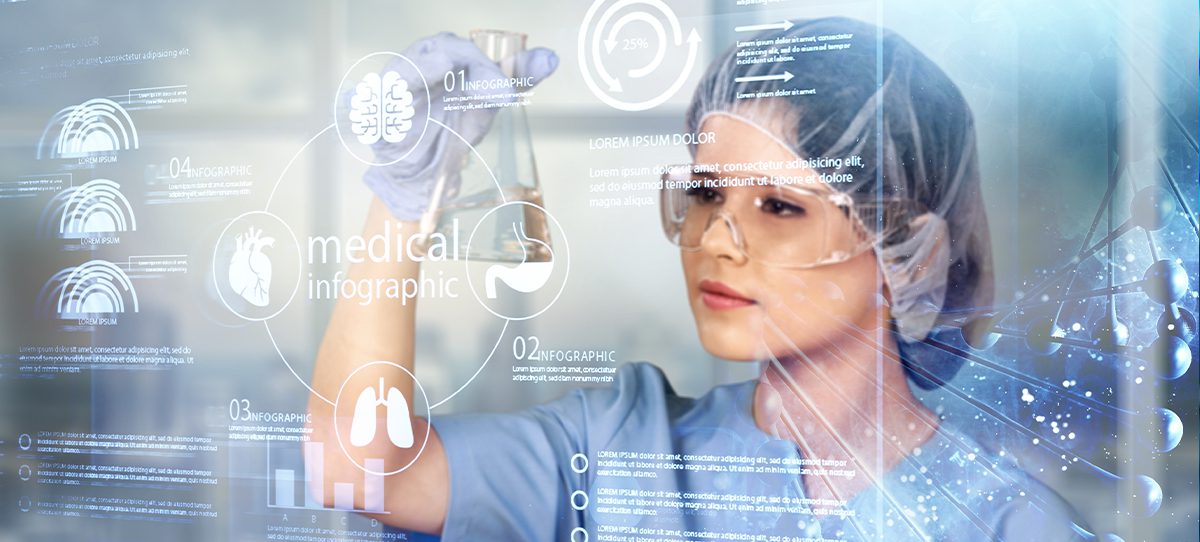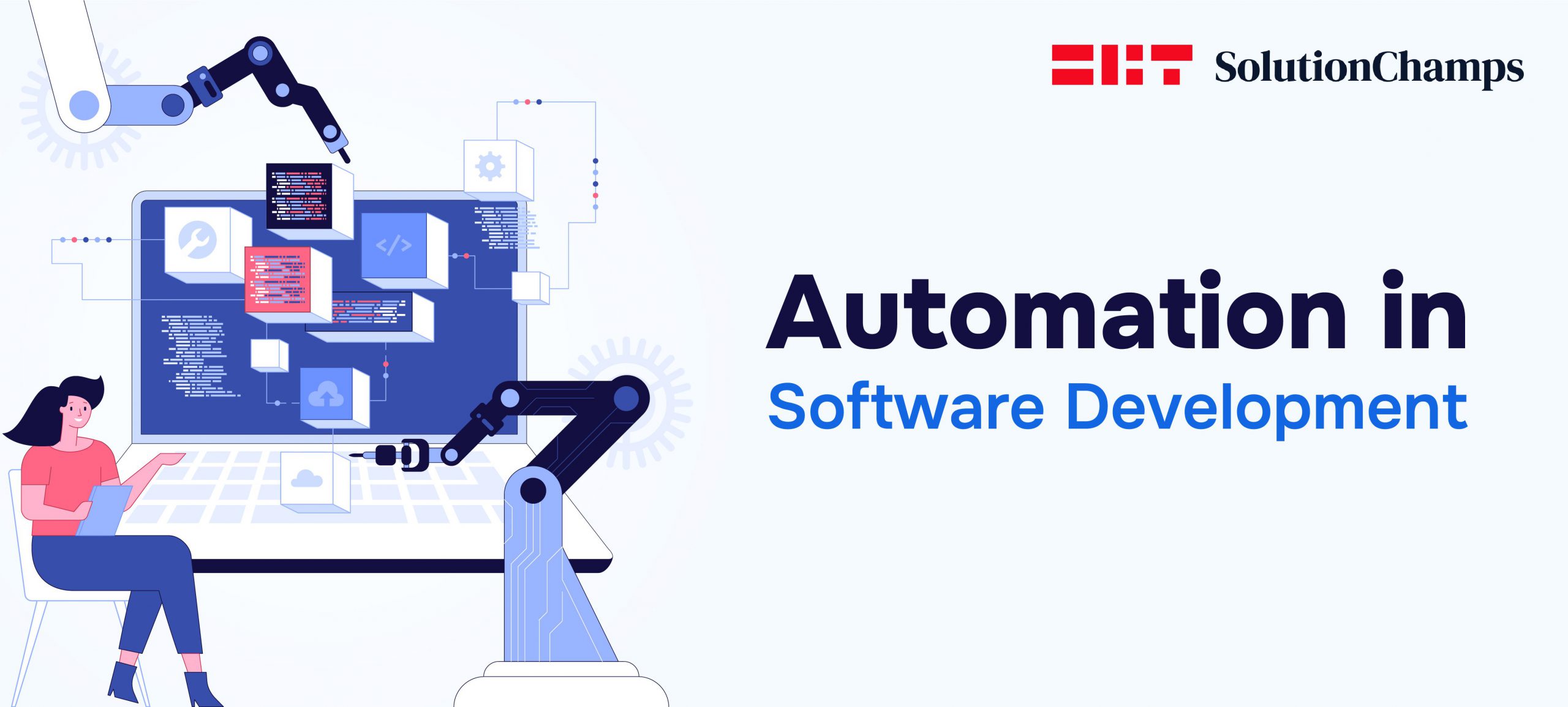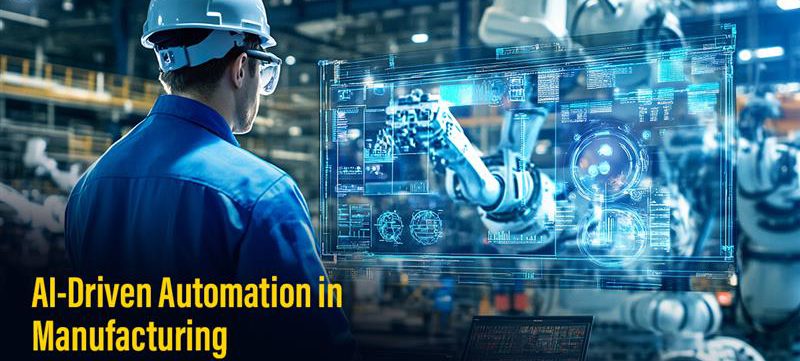Introduction
The integration of technology within the healthcare sector opens up fresh opportunities for both healthcare professionals and patients, fundamentally reshaping the industry. It achieves this primarily through task automation, thus freeing up valuable time for the staff. Let’s explore in-depth the five prominent AI trends that are reshaping the healthcare industry, along with their significant advantages.
AI Trends in Healthcare
Technologies such as AI, ML, 5G, and IoT are a few examples of advancements in the medical field. Here are a few trends of AI that are advancing the healthcare industry and driving digital transformation:
Robot-assisted Surgery
This is one of the most common applications in the healthcare sector. AI and collaborative robots have advanced surgical procedures. The robotic assistance enhances precision, control, and flexibility during operation. The benefits include:
- Less pain and blood loss
- Quick recovery, making a less hospital stays for patients
- Small or unnoticeable surgery scars
Drug Discovery
With AI in drug discovery already commenced, experts expect more AI adoption in the drug discovery process. With the promise of short development time and lower cost, it can treat incurable diseases at the earliest.
Medical Image Analysis
Medical image analysis by AI is far superior to traditional image analysis methods. AI algorithm helps diagnose, monitor, and treat complex medical conditions. They are widely used to:
- Identify any complex pattern in the imaging data
- Detect different image modalities during various stages of medical treatment including tumors.
- Discover various disease characteristics that cannot be detected by the human eye.
Telehealth
With the onset of the pandemic, everyone prefers to have a safer alternative for in-person visits. With more and more people using telehealth, providers could spend more time with their patients. This is part of a shift towards a more patient-centric approach to care, which has been proven to improve patient outcomes. Though the patient won’t visit the healthcare provider in person, they can still seek medical attention, and in some cases, a prescription. This time-saving approach allows patients to secure same-day appointments, eliminating the need for them to wait for days to visit in person.
Hospital Management
Routine administrative tasks – scheduling appointments, and medical inventory optimization are time-consuming. Handling a large data volume and providing quality care is quite challenging.
The AI-powered platform helps to optimize hospital operations. They can be integrated with the existing workflow and offer customized solutions. This approach could reduce downtime, and ensure uninterrupted, high-quality patient care. AI can be used to look at healthcare information and figure out fraudulent activities, if any.
Benefits of AI Trends
Right from business to government sectors, implementing AI offers various advantages. AI in healthcare has numerous benefits:
Better Patient Care
The deployment of AI in the healthcare sector provides one of the most promising advancements – better patient care.
For instance, when a doctor diagnoses a patient with an illness, the treatment typically involves a prescription for medication. In the realm of digital therapeutics, the physician may additionally prescribe multimedia-rich videos. These videos serve a dual purpose by comprehensively explaining the patient’s condition and offering clarity on the prescribed medication. They guide the patient on when and how to take the medication. They can inform them about potential side effects, making the treatment process more informative.
Increase Workflow Efficiency
Managing vast patient data is a complex task. AI can help healthcare providers streamline data entry, scheduling, and retrieval, so they can get the information they need quickly. Organizations can complete a wide range of tasks by AI-powered workflow automation.
Better Data-driven Decision
The healthcare sector needs to put patient care at the center. However, when required data is unavailable, we cannot derive the best result.
The effectiveness of big data along with AI supports clinical treatment. Under heavy schedules, it may be difficult for doctors to find necessary documents. Rather than manual finding, AI assists in this process. AI helps in collecting the necessary documents from the cloud upon request. With the correct information at hand, better decisions can be made.
Saves Time
Doctors need to spend more time on documentation works for each patient. This is one time-consuming burden laid on doctors.
Deploying AI in healthcare can help doctors and staff to free up their time to prioritize other tasks. AI completes major works with fewer or zero user clicks. These include:
- Clinical documentation
- Medical record management
- Billing and claim processing
- Revenue management
Billing and claim processing are tedious tasks for administrators. When AI is used in billing and claim settlement, the process gets streamlined while reducing turnaround time. Tech companies are working together with healthcare organizations to streamline operations better.
Personalized Treatment Plan
Every treatment plan can be compared with a roadmap. One common roadmap cannot offer the right way to every destination.
With precise treatment care, there has been significant progress in patient health. It can analyze a vast amount of data, including lifestyle choices, genetic makeup, and other factors to develop personalized treatment plans. This in turn offer various benefits to healthcare organization – increased revenue, and better patient-therapist relationships.
SolutionChamps specializes in delivering cutting-edge AI software development services, empowering businesses across diverse industries.
Early Diagnosis
In the medical field, it is important to identify certain medical conditions at the earliest to mitigate their severity and facilitate effective management. Early-stage detection simplifies the treatment and control process.
AI monitors the patient’s health behavior, thereby detecting the changes at the early stage. Early disease detection can include various advantages – reducing patient costs, the need for expensive tests, and improving quality care and the outcome of patient life. These in turn can reduce the burden for healthcare organizations.
Conclusion
The inclusion of AI in the healthcare industry is a trend that is worth recognizing. AI-infused technologies help to drive incredible value to healthcare organizations and patient care. This not only presents an opportunity within the profession but also assists in dealing with complex tasks and aids in automation. As accuracy and efficiency continue to improve over time, let’s delve into the potential of AI in healthcare and explore its future advantages. Elevate your business capabilities with our AI software development services, where we harness the power of artificial intelligence to create tailored solutions that drive efficiency and foster innovation.
 HealthCare
Contact Us
HealthCare
Contact Us
 HealthCare
Contact Us
HealthCare
Contact Us




